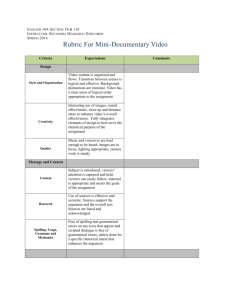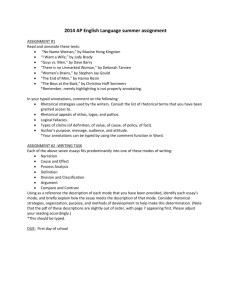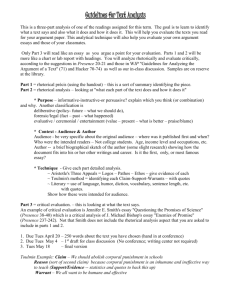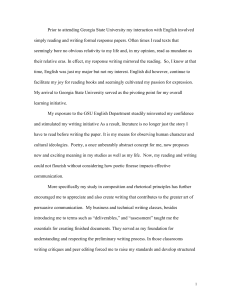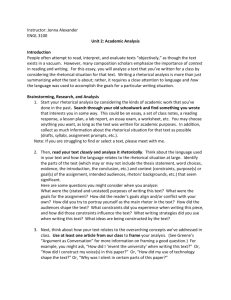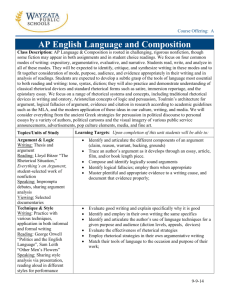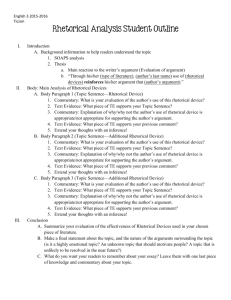Rhetorical Analysis - Where can my students do assignments that
advertisement
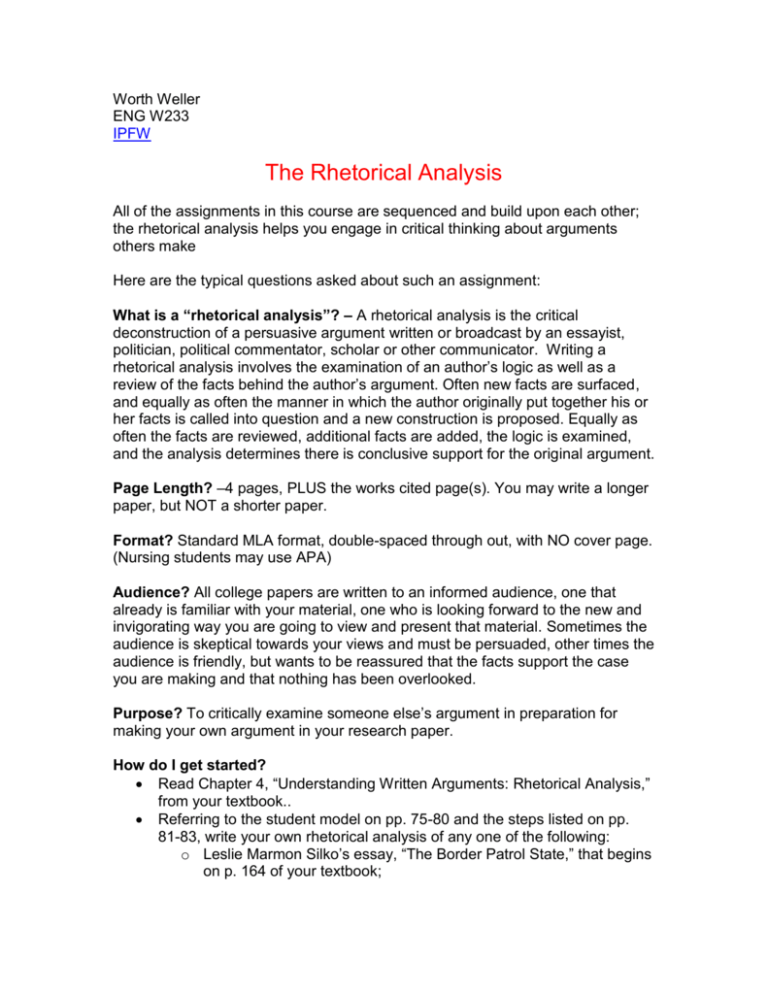
Worth Weller ENG W233 IPFW The Rhetorical Analysis All of the assignments in this course are sequenced and build upon each other; the rhetorical analysis helps you engage in critical thinking about arguments others make Here are the typical questions asked about such an assignment: What is a “rhetorical analysis”? – A rhetorical analysis is the critical deconstruction of a persuasive argument written or broadcast by an essayist, politician, political commentator, scholar or other communicator. Writing a rhetorical analysis involves the examination of an author’s logic as well as a review of the facts behind the author’s argument. Often new facts are surfaced, and equally as often the manner in which the author originally put together his or her facts is called into question and a new construction is proposed. Equally as often the facts are reviewed, additional facts are added, the logic is examined, and the analysis determines there is conclusive support for the original argument. Page Length? –4 pages, PLUS the works cited page(s). You may write a longer paper, but NOT a shorter paper. Format? Standard MLA format, double-spaced through out, with NO cover page. (Nursing students may use APA) Audience? All college papers are written to an informed audience, one that already is familiar with your material, one who is looking forward to the new and invigorating way you are going to view and present that material. Sometimes the audience is skeptical towards your views and must be persuaded, other times the audience is friendly, but wants to be reassured that the facts support the case you are making and that nothing has been overlooked. Purpose? To critically examine someone else’s argument in preparation for making your own argument in your research paper. How do I get started? Read Chapter 4, “Understanding Written Arguments: Rhetorical Analysis,” from your textbook.. Referring to the student model on pp. 75-80 and the steps listed on pp. 81-83, write your own rhetorical analysis of any one of the following: o Leslie Marmon Silko’s essay, “The Border Patrol State,” that begins on p. 164 of your textbook; o Linda Chavez’s essay, “The ‘Separation of Church and State’ Myth,” that begins on p. 184 of your textbook o The Wall Street Journal’s editorial about the New York Times and the controversy over the publication of details of how the; government monitors financial transaction to hunt for terrorists; the editorial and background information can be found by clicking here; o Deborah Tannen’s famous essay about how men and women (don’t) communicate, “Can’t We Talk,” which can be found by clicking here; o Or this web site, Global Warming: Early Warning Signs. Number of Sources? You must use three sources IN ADDITION to the essay itself that you analyze. Two of these sources must be from Ebscohost (Academic Search Premier) and one from Lexis-Nexis. You may use more sources. Grading? An “A” paper will: Have reached the page length requirement Be properly cited, with a correctly formatted Works Cited list (see details in chapter 16 of your textbook) Have used the required number of sources Have thoroughly covered the approach and steps of a rhetorical analysis as presented in Chapter 4 Contain focused paragraphs with appropriate transitions and wellintegrated quotes Start with an introduction that skillfully sets the scene and clearly states the topic and your argument with a well-crafted thesis statement End with a brief but philosophical conclusion WHW Page Created: 7.09.06 Page Updated: 9.26.06

